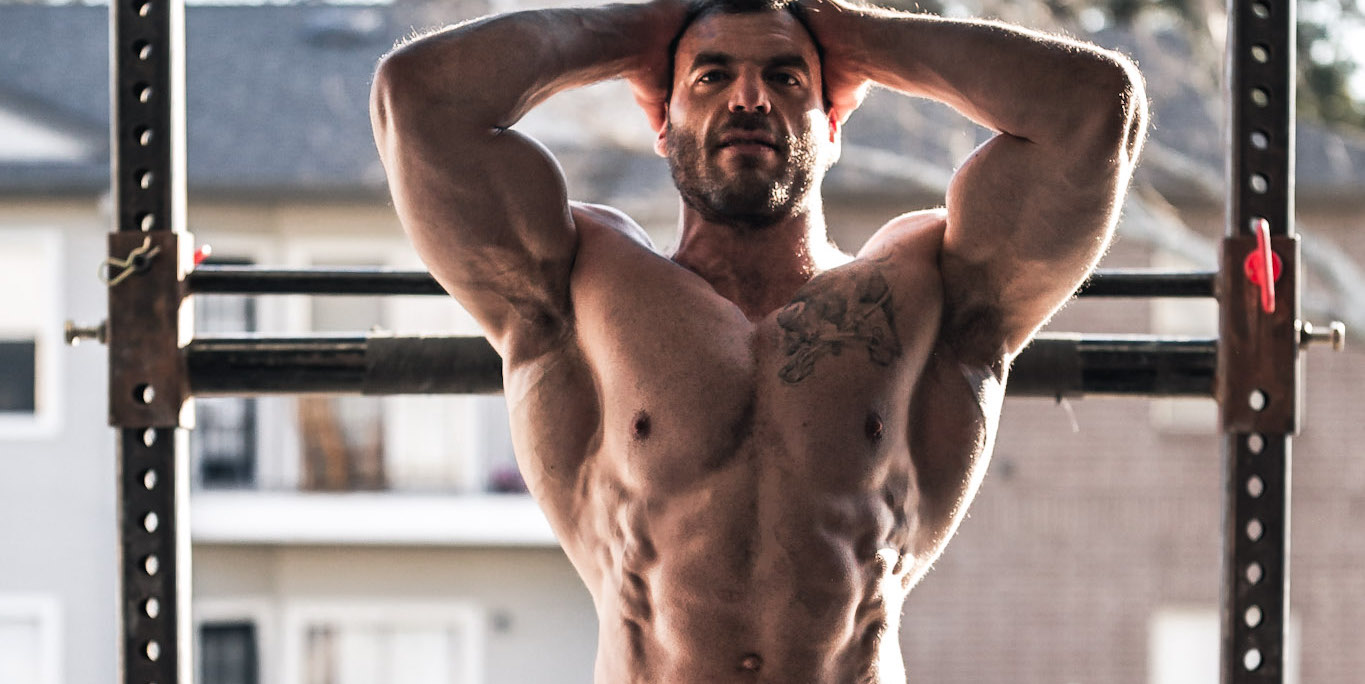
Earlier this year, I explained why I’m working with the Kabuki Strength team: I reached the point in my last meet prep where I had become my own worst enemy, and was too invested in my own goals to be able to objectively evaluate and adjust my training to perform at my best. I just started working with diet guru Justin Harris for similar reasons, and I couldn’t be more excited.
Justin has been one of my strength and physique inspirations — up there with Dave Tate and Dan Green — since I started training seriously. I used to watch Justin’s training DVD, Project Superheavyweight, before my heaviest sessions, and I read about every word he wrote.
One of the things that really stuck out to me was a quote from Project Superheavyweight. It was in reference to his training partner and Mr. Olympia contender, Steve Kuclo, wrapping his hamstring before some heavy squats (a lot like Joe Sullivan did during his recent meet prep). Justin pointed out that he and Steve always tried to distinguish between “being hurt and being injured.” At the time, I didn’t understand the difference. Now I do.
Your Body Is Resilient
Look, if I know one thing, it’s this: heavy training hurts. There’s no way around it. If you’re truly pushing the limits of your strength, you’re going to hurt all. The. Fucking. Time. Here’s a list of what hurt when I woke up this morning:
- Deep soreness in my left shoulder/rhomboid area (chronic)
- Tightness in right trap
- Bruised/sore right elbow
- Torn calluses (only two right now)
And that’s a great day. None of this shit is, in my mind, even worth mentioning. These things hurt, but I don’t consider them injuries, because I know they will not interfere with my ability to train.
That's the difference between hurt and injured. Things that hurt don't keep you from training, and they don't get worse if you train through them. Injuries limit your ability and can get worse if you push through.
Now, that doesn’t mean I don’t take them seriously. Any one of these could easily turn into an injury if I were to simply train through without taking the proper precautions (with the exception of the torn calluses). I regularly get massage therapy or chiropractic work for the shoulder and upper back, which has long been a problem for me, and will probably continue to persist throughout my entire training career. I also make sure to perform dedicated rotator cuff work at least twice a week. As soon as I woke up, I applied DMSO to my bruised elbow; the pain had subsided by midday.
Unfortunately, being able to differentiate between being hurt and being injured only comes with experience. When you’re just starting out, you won’t be familiar enough with your body to correctly read the signals it’s giving you – so chances are, you’ll probably sometimes decide to rest when you’re “only” hurt, and train when you’re really injured. That’s part of the learning process, and it’s unavoidable. Through years of trial and error, you will become more and more skilled at identifying when it is safe to train and when it is not.
Safe, of course, is a subjective term in this sport. I tend to err on the side of being conservative; I probably wouldn’t have trained through a hamstring tear like Joe did. Only you can evaluate what level of risk you are will to accept when training hard. Make no mistake, though: training hard always brings risks.
Of course, some people will look for excuses not to train, and will skip the gym because of the slightest of aches and pains — but if you were one of them, you probably wouldn’t be an Elitefts reader.









This is where I feel that the conjugate system has some real value to it, because of the constantly rotated exercises placing different stress on the joints, no one single area is inflamed or ever gets too tight. You can max out more often while not risking as much injury. I talked with one of the Kabuki guys on the phone (just once) and they don't seem too keen on it, so I'm curious how they're working to "pre-hab" and rehab with you. What exactly are they doing with you to help prevent injury?
Feel free to disagree btw. I know that it's still important to practice competition lifts, but I feel that at least a few yoke bar squats, chain deadlifts, or box squats would be advantageous in preventing injuries due to the constant variety.